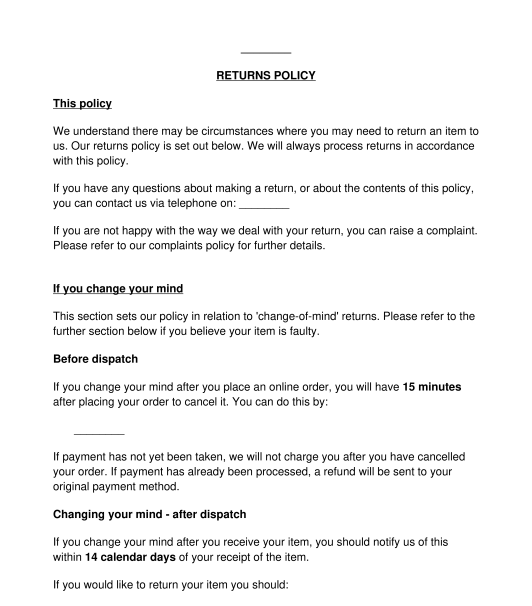 25/11/2025
25/11/2025

Answer a few questions and your document is created automatically.

Your document is ready! You will receive it in Word and PDF formats. You will be able to modify it.

 25/11/2025
25/11/2025
 Word and PDF
Word and PDF
 2 to 3 pages
2 to 3 pages
A returns policy can be used by a business in the United Kindom to explain its process for accepting returns. The returns policy will explain how consumers can return products that have been bought in stores and/or online.
A consumer is an individual who purchases goods and/or services from a business for personal use. Consumers have certain rights and protections, including the right to a refund, repair or replacement in certain circumstances.
No. It is not obligatory to hold a returns policy. Many businesses choose to hold this kind of policy to:
This policy can be used by any business that sells goods to consumers. It is not designed for use in commercial (business-to-business) sales agreements. A consumer is an individual who purchases goods and/or services from a business for personal use.
Once the policy has been completed, it should be kept in an accessible place. For an online retailer, the policy should be placed on the retailer's website. For an in-store retailer, the policy will usually be placed in a prominent location in the store.
Once the policy has been put in place, the business should process returns in accordance with the policy.
A business that provides goods or services to consumers will hold a returns policy in conjunction with other important documents such as:
The policy will:
The policy will also explain:
The main laws that are relevant to consumer rights and returns are:
You fill out a form. The document is created before your eyes as you respond to the questions.
At the end, you receive it in Word and PDF formats. You can modify it and reuse it.
Returns Policy - Template, online sample - Word and PDF
Country: United Kingdom